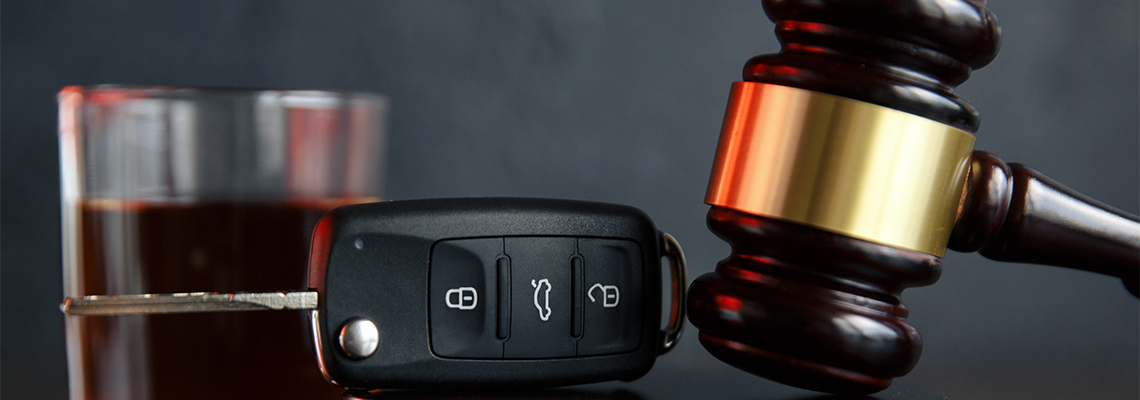WHAT DO I DO IF I AM CHARGED WITH A DUI?
A first offense DUI is a misdemeanor, not a felony. Therefore, Victoria can appear for you per Government Code 977(a) at your arraignment and at all pre-trials so that you don’t have to miss work. This alone can save you hundreds if not thousands of dollars. Why stress yourself out by appearing in court once a month? Let Victoria do the heavy lifting and hard work to get to the bottom of your defense. While she’s at it, let her get the charges dropped or significantly reduced whereby you avoid thousands of dollars in fines, an ignition interlock device (usually around $2,000.00 and a severe pain in the rear,) and an alcohol class AB-109 (cost approx. $2,000) , duration: one year.
A charge for DUI is really two cases in one: a DMV hearing and your DUI case that is heard in court.
The DMV hearing is administrative in nature and is less formal than a court proceeding.
WHAT ABOUT MY DRIVER’S LICENSE??
Law enforcement will take your license (physically take it) and give you a piece of paper which is a temporary license for to and from work or school.
Scheduling a DMV hearing is harrowing, but it is something that has to happen or you will lose your license to drive which can cause more charges such as driving without a license, Vehicle Code 12500, a misdemeanor, or other charges. You already have the DUI and the DMV hearing, you don’t need another case!
You will be given a temporary license (good for 30 days) and that will tell you that you have TEN DAYS FROM THE DATE OF YOUR ARREST to request a DMV hearing. If you fail to do so your driving privilege will automatically be suspended!
IF CONVICTED, YOUR LICENSE MAY BE REVOKED FOR:
1st time DUI: 1 year if you have no prior DUI’s or convictions for the last 10 years;
2nd time DUI: 2 years if you have a DUI within the last 10 years
3d time DUI: 3 years if you have 2 or more convictions within the last 10 years.
THE OTHER THING YOU NEED TO KNOW ABOUT YOUR ARREST:
An arrest for a DUI does not equate automatically to a conviction. As your advocate, we at the law offices of Victoria Clemans, want to keep your track record pristine and we know you do too. We will help you to develop a strategy, look for mistakes made by law enforcement during the stop, investigate the field sobriety tests to see if the breathalyzer was in good working order and if it was calibrating your blood alcohol correctly. The legal limit in California is ,08, hence, your BAC (Blood Alcohol Content) cannot be above that. If you were given a blood test, your blood will be independently tested through an independent laboratory.
WHAT HAPPENS IF I REFUSE TO GIVE A BREATH OR BLOOD TEST?
If you refuse a breathalyzer (PAS) or a blood test, your license will automatically be suspended!
It is best to cooperate with the authorities if you are stopped for a DUI.
California regulations include: California Code of Regulations under Title 17, Division 1, Chapter 2, Subchapter 1, Group 8. Among other guidelines, Title 17 dictates that samples of blood or urine shall be tested only by a laboratory approved and licensed by the California Department of Health Service (CA DHS) and in accordance with regulations established by the DHS.
The Breath Test
The Breath Sample is the most common because let’s face it, it’s cheaper than blood or urine, it’s faster and shortens the amount of custody time (15 minutes for a proper read-out) and can be easily learned by the operator of the device. Lastly, it has little invasiveness of the human body.
The Urine test:
If alcohol is consumed with a full bladder, this may give a false negative. On the other hand, if the urine test is given with an empty bladder, the test could produce a false positive by inaccurately overestimating the blood alcohol content. As a result, the only approved urine sample for BAC is a sample collected no sooner than 20 minutes after first completely voiding (emptying the bladder.) It also must be collected closer rather than further in time from the time of the arrest. For example, the cops wouldn’t be you in “the drunk tank” and then come back the next morning to test your urine. This goes for all three forms of testing.
The Blood test:
Blood tests measure the percentage of alcohol in the driver’s blood at the time of testing. Blood samples are retained for one year from the date of collection, and during the retention period, a sample of the BAC analysis is requested by the defendant for analysis and a sufficient sample remains, the laboratory shall provide a portion of the sample to the defendant. Blood samples need to be protected from light and heat. If a blood sample is requested by the detainee, he or she can ask for a blood test. Generally, law enforcement will take you to the nearest cop shop to have your blood taken before it leaves the individuals blood-stream.
This is why if a blood sample is given, Victoria will have an independent laboratory analyze the sample and if it defective, your case just may be thrown out.
With the right lawyer, there is a good chance the charges will be dropped or significantly reduced.
This is why you need an aggressive attorney who will do the heavy lifting and not just talk at you like a salesman. We want to hear your story because there is a lot at stake and Victoria gets it! We won’t pass you off to some junior associate, you will be treated with the respect, dignity and integrity you deserve.
A DUI conviction comes with astronomical fees, an alcohol program, an ignition interlock device and more. Therefore, a DUI case is not something you want to do alone! You need a strong lawyer in your corner, and Victoria is that lawyer.
Don’t put off getting your attorney, the best time to get one is before the 10 day period when your license will expire.
WHAT TO DO TO AVOID GETTING A DUI
-USE A RIDESHARE, THEY ARE ALWAYS IN YOUR AREA AND USUALLY 5 MINUTES AWAY
-GIVE YOUR KEYS TO A FRIEND THAT IS THE DESIGNATED DRIVER
-TAKE A RIDE WITH A FRIEND AND COME BACK THE NEXT DAY TO RETRIEVE YOUR CAR.
ARE DUI CHECKPOINTS LEGAL IN CALIFORNIA?
The simple answer is yes. According to the vehicle code “a driver of a motor vehicle shall stop and submit to a sobriety checkpoint inspection conducted by law enforcement agency when signs and displays are posted requiring that stop.” Believe it or not, they sometimes publish it in a newspaper, to minimize drunk drivers on the road, to give drivers notice so they can choose an alternate route to avoid traffic sometimes caused by a stop, lastly, to legitimize the stop.
Police officers in California aren’t supposed to pull you over for no reason. Generally, the officer must have probable cause. However, one exception involves the use of sobriety checkpoints to stop drivers to check whether they may be under the influence. California regularly makes use of sobriety checkpoints. Also known as DUI checkpoints, there are thousands taking place each year across the state.
Law enforcement officers are supposed to follow a protocol or guidelines to ensure that a sobriety checkpoint is Constitutional, but police don’t always follow the rules. According to the National Highway Traffic Safety Administration (NHTSA), a sobriety checkpoint must have the following:
Be located in a reasonable spot;
It must be in a safe place that is well lit, for example not on a steep mountain!
The amount of time spent must be reasonable, especially at night when temperatures drop you don’t want to risk hypothermia;
The driver must be stopped for a minimal amount of time;
There must be officers supervising the operation or stop;
There should be street lamps overhead so the officer can see your eyes;
Obvious and official police presence and visibility.
There must be signs and displays that comport with the law for the stop to be valid
If you live in California, you have probably been through a checkpoint. It is generally an officer who will stop you briefly, look at your eyes and see if they smell alcohol emanating from the car or from your breath. They usually say something like “how’s it going tonight?” so that you will have to respond to their question (another cue is slurring your words.)
USE OF SOBRIETY CHECKPOINTS
The U.S. Supreme Court has held that DUI checkpoints do meet the Constitutional standard for “reasonable search and seizure” because the government has a substantial interest in preventing drunk driving. Checkpoints are rationally related to that interest. A sobriety checkpoint is considered by the courts as an “administrative procedure” rather than a criminal police stop.
During a DUI checkpoint stop, officers can briefly stop all vehicles or use a non-discretionary system for stopping vehicles. When officers speak to the driver, they are interested in looking for any signs of alcohol or drug impairment. This includes the smell of alcohol in the car, bloodshot eyes, smelling marijuana in the car, slurred speech, or even the driver admitting to drinking alcohol.
If an officer suspects a driver is impaired based on his/her observations, the officer may have the driver pull over for further investigation. This may include additional questioning, use of a preliminary breath tests, or field sobriety tests. If the officer determines the driver is impaired, he/she will place the driver under arrest and take him/her to the station where they will administer a chemical test to determine blood alcohol concentration also known as blood alcohol content.
PUBLIC NOTICE OF SOBRIETY CHECKPOINTS
It may seem counter intuitive for police officers or the CHP to put out a notice in the newspaper or on social media about an upcoming sobriety checkpoint. However, one of the greatest impacts sobriety checkpoints have is deter drivers from taking to the roads if they have been drinking. It also allows the public to avoid traffic delays and gives them time to plan an alternate route.
Another purpose of a sobriety checkpoint is to identify drivers who may not be intoxicated but have some other vehicle or criminal violation. This includes distracted drivers on the phone, seat belt violations, driving on a suspended license, and sometimes catching drivers who currently have a warrant out for their arrest or have an illegal weapon such as a gun, in their car.
Anything that is in plain view is fair game. Meaning, according to the plain view doctrine which is an exception to the Fourth Amendment, it states:
“The plain view doctrine permits the warrantless seizure of items if the items are discovered inadvertently and are immediately apparent as evidence of a crime.”
Anything that is considered contraband and is readily visible to the naked eye is considered “plain view,” and can be Constitutionally seized by law enforcement.
CONTACT YOUR ATTORNEY RIGHT AWAY, DON’T WAIT!
If you are arrested for a DUI, contact your attorney right away, remember, an arrest does not automatically lead to a conviction! Call Victoria and keep her number with you at all times if you like to party—(phone number goes here). If a bond is set, Victoria has a reliable and reasonable bondsman. Most of the time you will be released O.R. (on your own recognizance., but if not, Morris is there.
The “former prosecutor” advertisement. I have been handed down cases where the client’s former lawyer was a former prosecutor. He charged double what Victoria charged and didn’t do the work to find a defense. The client wasted valuable time and money as the prior lawyer/pros. Didn’t do any work for 2 years. He just let it sit in his office. This isn’t the case with every prosecutor as some are very hard working. But don’t let it fool you into thinking they are connected with the judges and know it all. It’s just a catch-phrase that they use to get more money out of your pocket.
And there are others! What was your experience?
Tell Us Your Version of The Events in The Box at The Bottom of The Page!
All of these tests can be refuted at trial. My job as your lawyer is to get as get to the bottom of all of these tests by investigating the facts and going through all of the discovery and body worn AXON video.
All of this information may be useful for exploring the defenses available to you in your administrative license hearing and in your criminal case. Even though police officers conduct DUI stops all the time, they still make mistakes, or take shortcuts which violate your rights. An unconstitutional traffic stop –meaning, the reason for the stop was not valid or constitutional and as such was illegal. Anything that derives from an unconstitutional stop is “fruit of the poisonous tree.”
Do not give a statement without an attorney present! Especially if you are tipsy, you may inadvertently give a confession! If you give a statement and were not Mirandized, that statement will be thrown out as being in violation of your 5th Amendment Right to an attorney!




